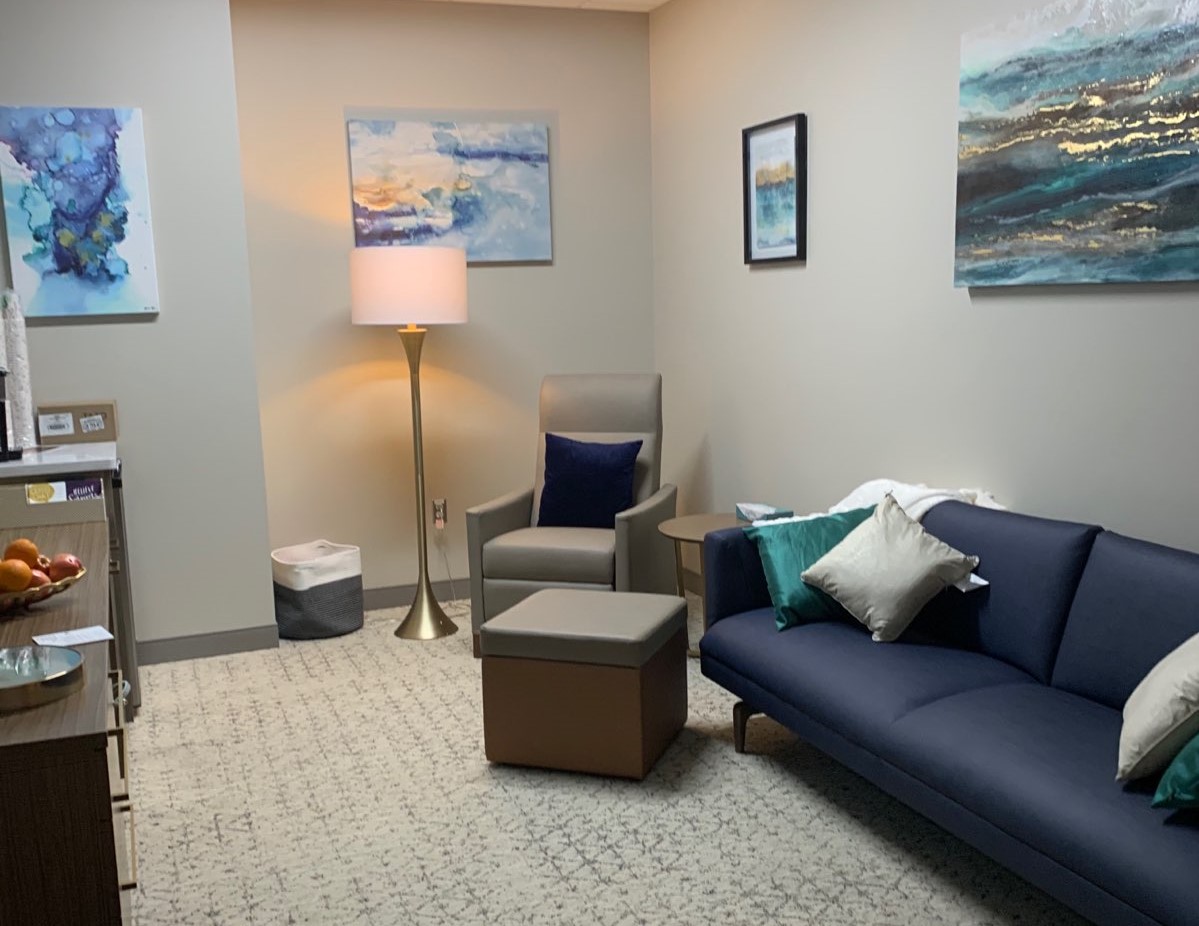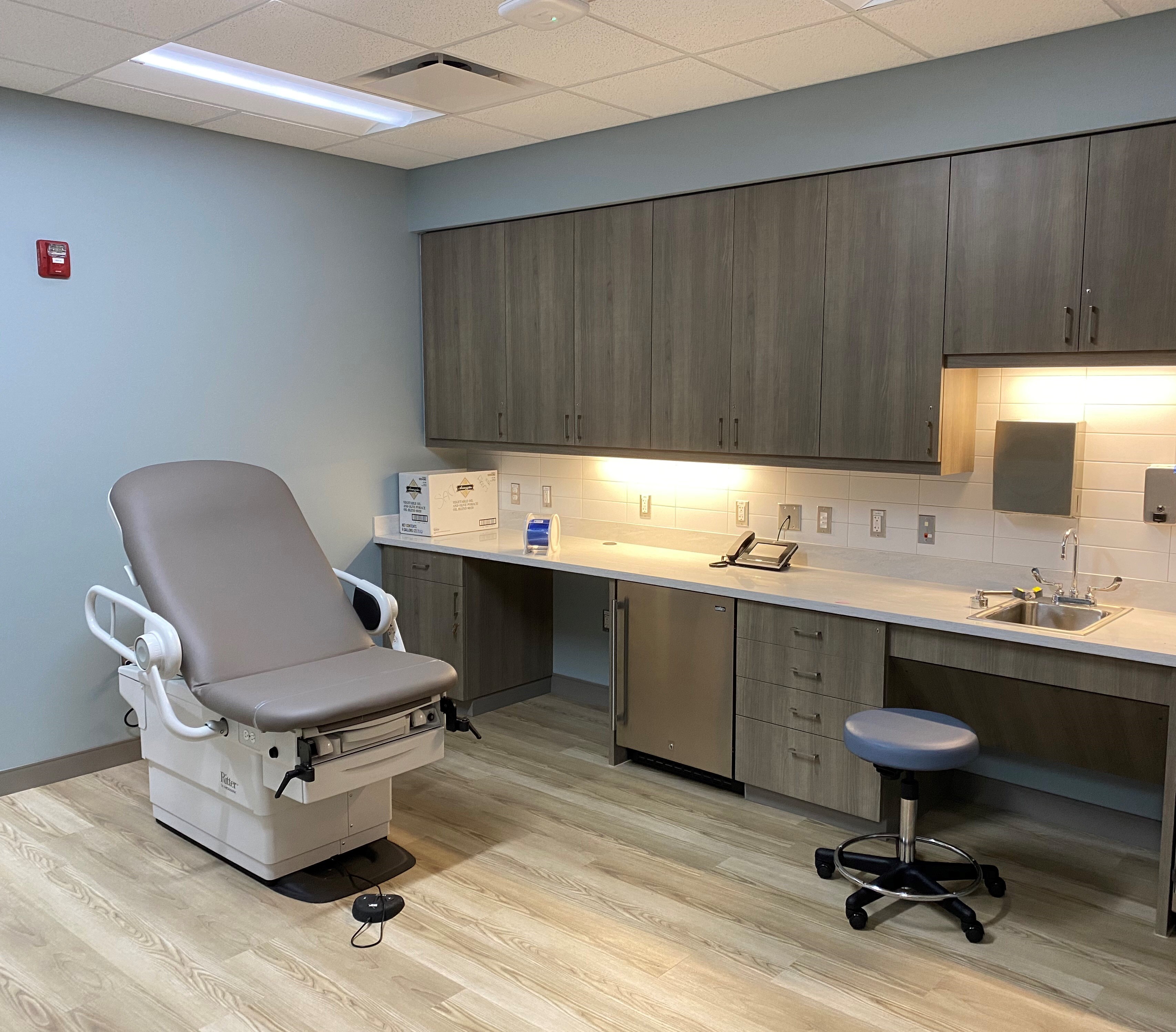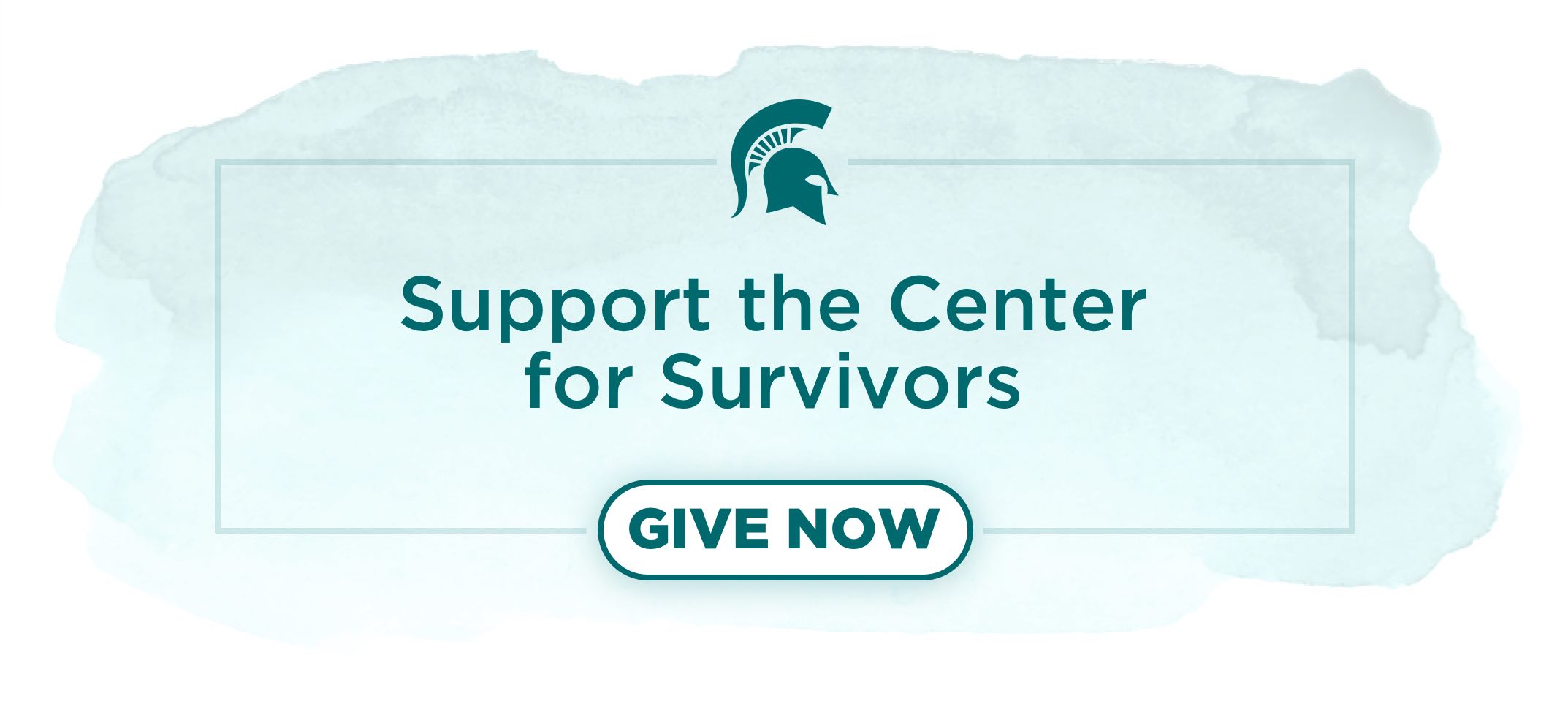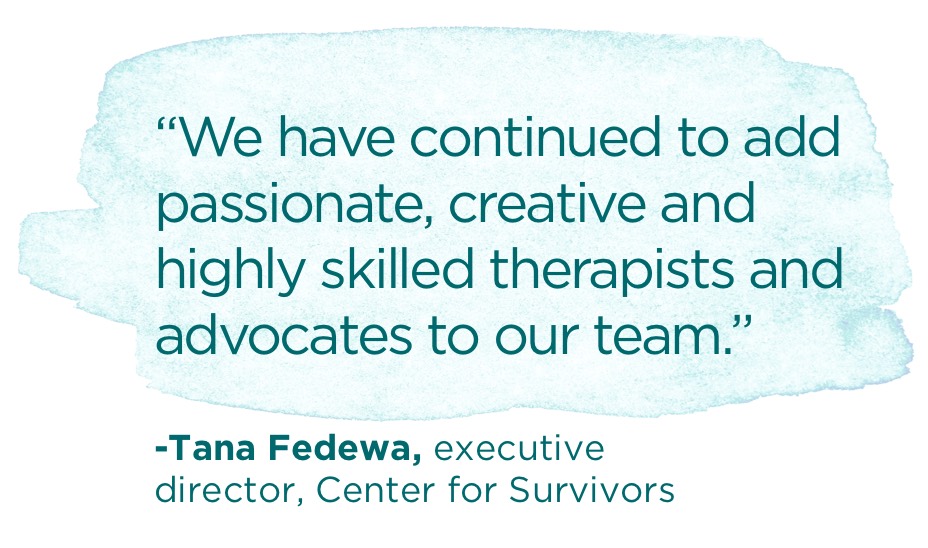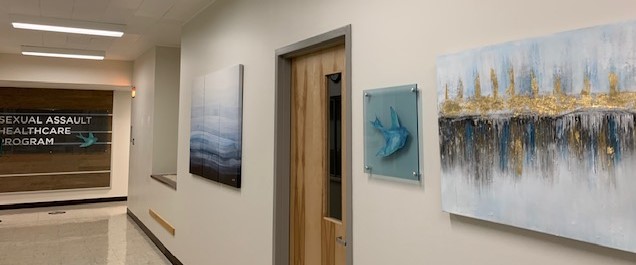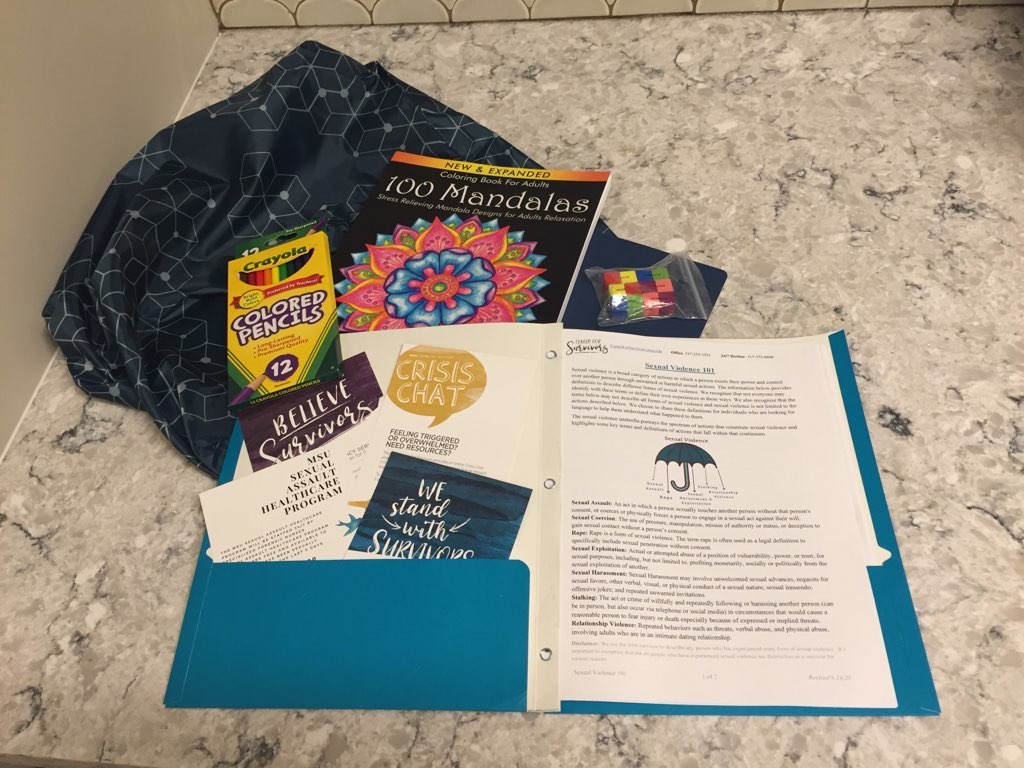Building a robust program for survivors
Note: The Center for Survivors shared recent testimonials from survivors who have utilized the program’s services. The identities of the survivors will remain anonymous throughout this article, and their testimonials will be shared under the pseudonym “Survivor.”
MSU’s Center for Survivors and Sexual Assault Healthcare Program are recognized as national models for responding to sexual violence. Tana Fedewa, the center’s executive director, is making headway in developing this program to be a comprehensive resource for survivors to receive healing and begin taking steps to seek justice.
Fedewa was no stranger to this work when she took the lead of this team more than eight years ago. She joined the program after receiving her Master of Social Work from MSU and later completing internships in domestic violence and sexual assault programs.
“My entire career I have worked with survivors of violence, and I am very connected to this work,” she says. “The folks on my team are my inspiration. I have never before been a part of such a committed and innovative team.”
It was Fedewa’s vision, with the help of campus experts in RVSM topics, that has expanded the Center for Survivors to be a haven for survivors at MSU and also in the Greater Lansing community.
“When I began leading this unit in 2015, there were four full-time staff and nearly 100 trained crisis intervention volunteers at the Center for Survivors (formerly known as the Sexual Assault Program),” says Fedewa. “We have continued to add passionate, creative and highly skilled therapists and advocates to our team.”
The center now employees 28 full-time staff members as well as 100 crisis intervention volunteers, providing a range of free therapy, advocacy and crisis services that are available to anyone who has experienced sexual violence in their lifetime. It serves faculty, staff, students and community members, though therapy services are only available to MSU students.
Fedewa says one of her hopes is to continue expanding and adapting to meet the needs of survivors across the campus community.
“I cannot even begin to describe it; it has changed my life,” says Survivor 1. “I could barely get out of bed after my assault, and now my therapist has helped me want to live again and live fully.”
The center currently is funded through a federal Victims of Crime Act, or VOCA, grant administered by the state of Michigan as well as through donations and some university funding. Since 2015, this grant funding has increased from less than $300,000 per year to more than $1.7 million per year as the program has grown to meet the demand for additional therapy and advocacy services. VOCA funds have been contingent on a significant financial commitment from the university.
This funding has also been used to create a campus Sexual Assault Response Team and the Sexual Assault Healthcare Program. In addition, the Center for Survivors utilized these funds to create an intentional trauma-informed space on campus where a survivor can come to one location to have their healing and justice needs met instead of having to navigate multiple offices in different locations.
“I have an advocate who is supporting me through a current court case,” says Survivor 2, a recipient of advocacy services. “She is the best emotional support I could have asked for to help me through the process, from understanding what is being said to processing through my feelings to attending court with me. She is my first-touch person I reach out to whenever I have any questions or concerns about my case.”
The Sexual Assault Healthcare Program is located in MSU’s Student Services Building. The program is the first of its kind on a college campus.
“The center’s services are unique in our ability to provide wraparound, holistic care to survivors,” says Kathleen Miller, associate director of the Center for Survivors. “Survivors seeking therapy may also have an advocate go to court with them, attend a group or workshop, or utilize our trauma-informed interview room. The center is intentionally designed to be a central location for a survivor seeking help.”
The Center for Survivors provided close to 4,500 therapy sessions and nearly 2,700 advocacy services in 2022. Throughout the past several years, many at MSU have experienced challenges following the COVID-19 pandemic.
“The pandemic challenged us to re-envision how we serve clients at the Center for Survivors,” says Miller. “It increased our ability to offer telehealth services, which has been life-changing for many survivors seeking help.
“Additionally, the demand for our therapy services has traditionally been greater than our capacity,” says Erin Roberts, associate director of the Center for Survivors. “We have been able to secure more therapists to meet the demand in a timelier manner and recruit and hire a more diverse therapy team.”
Individuals who access the Sexual Assault Healthcare Program receive useful resources that inform them of their rights, educate them about the impact of trauma and connect them to aftercare services.
During the pandemic, the Center for Survivors expanded its crisis hotline's chat function. This is one of the efforts to increase accessibility to support, based on a study conducted by MSU researchers to determine the effectiveness of chat-based support.
The study findings, published in the Journal of Interpersonal Violence, are the first to report in a peer-reviewed journal the impact of these services compared to traditional hotlines offered by college campus support centers.
Since this study, the Center for Survivors has implemented and found success in providing this method to MSU faculty, staff, students and their families.
